The 1 kitchen 'essential' professional cleaners never waste their time or money on – and their $14 must-have non-toxic alternative
Paper towels are handy, but there is a better and sustainable option


Design expertise in your inbox – from inspiring decorating ideas and beautiful celebrity homes to practical gardening advice and shopping round-ups.
You are now subscribed
Your newsletter sign-up was successful
Want to add more newsletters?

Twice a week
Homes&Gardens
The ultimate interior design resource from the world's leading experts - discover inspiring decorating ideas, color scheming know-how, garden inspiration and shopping expertise.

Once a week
In The Loop from Next In Design
Members of the Next in Design Circle will receive In the Loop, our weekly email filled with trade news, names to know and spotlight moments. Together we’re building a brighter design future.

Twice a week
Cucina
Whether you’re passionate about hosting exquisite dinners, experimenting with culinary trends, or perfecting your kitchen's design with timeless elegance and innovative functionality, this newsletter is here to inspire
Paper towels have been a staple on kitchen counters for decades, but there is a far better option for keeping surfaces clean, professional cleaners claim.
Although made from paper rather than plastic, paper towels are a big part of the single-use waste problem and are not as efficient for cleaning and disinfecting a kitchen as you might initially think.
As a result, professional cleaner Karina Toner long ago ditched them for good. What does she use to clean a kitchen instead? The hardy, humble and helpful microfiber cloth.
Swapping paper towels for microfiber cloths
According to environmental studies, paper production is responsible for the felling of around 270 million trees annually (that’s 35% of all harvested trees), resulting in huge losses of natural habitats and an acceleration of climate change.
What’s more, the processes needed to harvest and manufacture paper towels are highly water-intensive and pollutants are released into waterways. Whilst it's easy to think paper towels are a non-toxic cleaning product, the bigger picture shows they are not all that good for the planet.
Additionally, relying on paper towels alone is one of the biggest home cleaning mistakes, making chores harder, experts say.
Karina Toner, professional cleaner and operations manager at Spekless Cleaning, shares, ‘If you’re still relying on paper towels for everyday cleaning, you’re definitely not alone. They’re convenient, familiar, and always seem to be within reach.
Design expertise in your inbox – from inspiring decorating ideas and beautiful celebrity homes to practical gardening advice and shopping round-ups.
'But here’s the thing: once you try high-quality microfiber cloths, it’s hard not to notice the difference. It’s a simple swap that saves time, money, and a whole lot of waste without sacrificing results.’
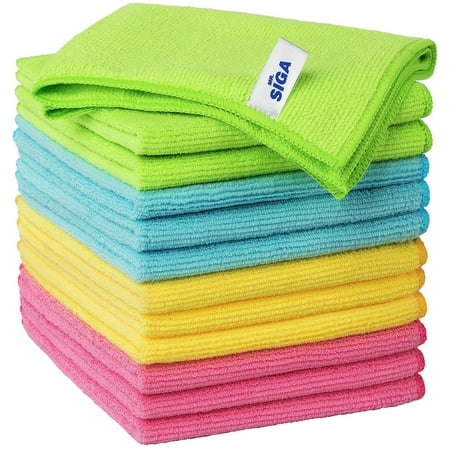
Microfiber cloths are one of the most versatile cleaning tools, perfect for dusting, disinfecting, mopping up spills, treating stains on fabric, and more. They can be reused dozens, if not hundreds, of times and do not lose their absorbency unless you use a fabric softener when laundering.
Karina continues, ‘Microfiber isn’t just your regular fabric; it’s engineered for cleaning. The ultra-fine fibers grab onto dirt, grease, and bacteria instead of just pushing them around like a paper towel. Plus, they’re absorbent enough to soak up several times their weight in water, so you’ll use fewer passes and leave less behind.’
As a result, Karina says, you achieve a streak-free shine when cleaning windows, adding, ‘It works great on glass, mirrors, and stainless steel; no lint, no smudges, no second wipe needed.’
The best bit? Microfiber is machine washable and durable enough to last through hundreds of washes, she adds, which means fewer rolls of paper towels in your cart (and your trash bin!).
Just made sure you do not wash them with items that might snag, such as jeans or clothing with zippers.
How to use microfiber cloths correctly

Microfiber cloths can be used all over the home, including bathrooms.
There are several ways to use microfiber cloths beyond dusting, and luckily, microfiber cloths are easy to integrate into your existing cleaning routine. That being said, it is important to avoid some common cloth mistakes to prevent cross-contamination.
Karina urges, ‘Use different cloths for different tasks to avoid cross-contamination: one for glass, one for the kitchen, one for the bathroom. For best results, lightly dampen the cloth before use, especially on reflective surfaces, and fold it into quarters. This gives you multiple clean sides to work with before needing to rinse or swap.’
Most multipacks, such as a 50-pack of microfiber cloths from Amazon, are brightly colored in distinct hues for exactly this reason. Head of Solves, Punteha van Terheyden says, 'I allocated one color to each of the three bathrooms, and my kitchen, so everyone in the household knows where to put the cleaning cloths away, and which ones to use where. I keep a stack in each space so I always have one on hand to use.'
This technique will help you avoid giving in and buying paper towels for convenience.
Finally, make sure to wash microfiber clothes correctly. Karina advises, ‘Skip the fabric softener when laundering as it clogs the fibres and affects its cleaning performance. Just toss in the wash with mild detergent [such as Tide Free & Gentle, from Walmart] and air dry or tumble on low. Similarly, store them correctly between uses, letting cloths dry completely to avoid mildew or odour build-up.’
Always skip the fabric softener to maintain microfiber cloths' ability to soak up water.
What to shop
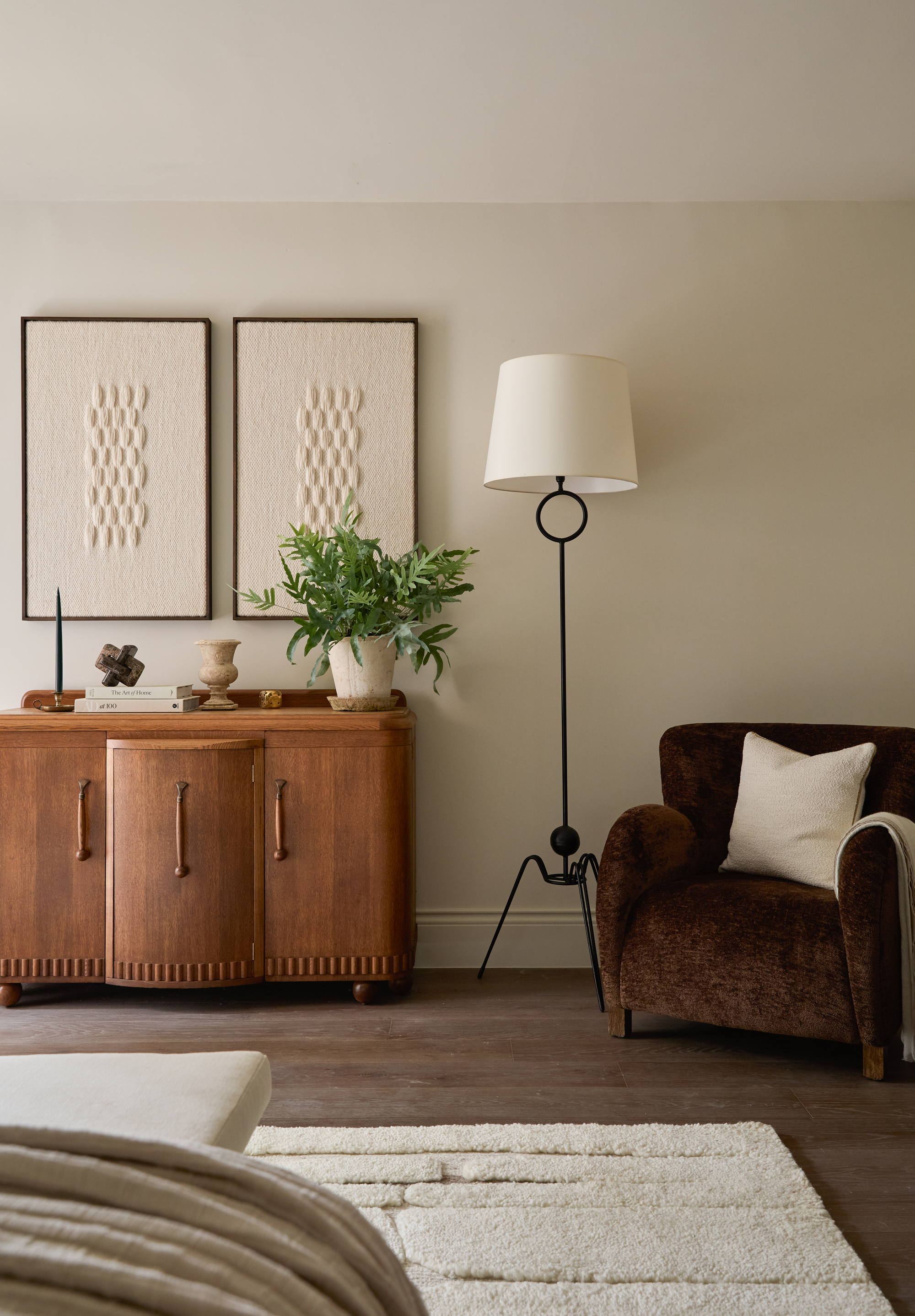
Microfiber cloths are perfect for dusting.
When fleshing out your cleaning supplies checklist, be sure to pick the right microfiber cloths for your home. Not all are made equal, Karina warns. ‘Some are thin or less absorbent, so be on the lookout for tightly woven, high-density cloths for the best results.’
Karina also suggests color-coding cleaning, helping to prevent contamination. ‘Color-coding by room or task keeps things hygienic and helps your routine feel more dialled-in.’
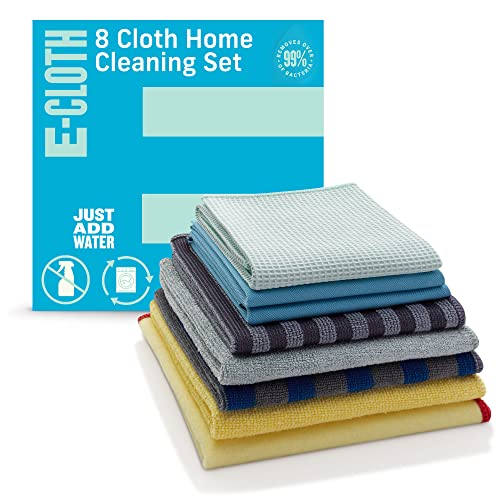
Karina says, 'This set includes a variety of cloths for different surfaces, each labeled so you know what to use where. They offer streak-free results with just water, making it a go-to for people trying to reduce cleaning chemicals.'
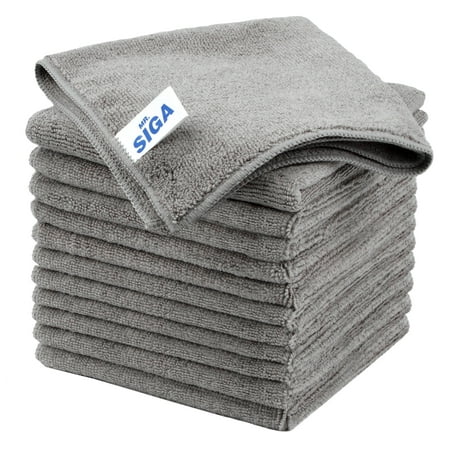
Karina explains, 'Soft, absorbent, and affordable in a bulk pack; these are perfect for daily spills and messes. They are also great value if you’re trying to transition your whole routine away from disposables.'
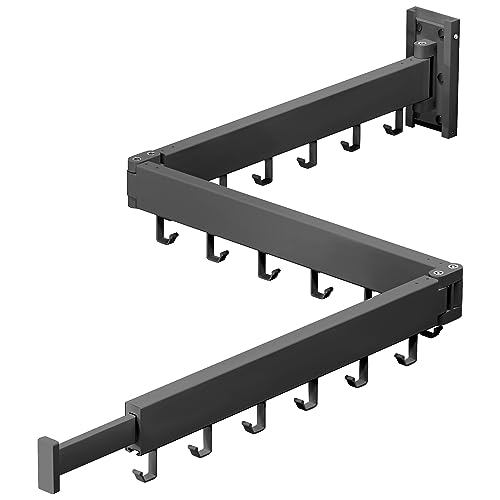
Karina shares, 'This wall-mounted and retractable that lets your microfiber cloths dry out between uses. This prevents mildew and makes air-drying a breeze, especially in small spaces.'
Meet the expert

With numerous contributions in Homes & Gardens, Real Homes, The Spruce, and many more, Karina has extensive knowledge of both commercial and residential cleaning, and knows better than anyone how to break bad housekeeping habits for good.
When creating a non-toxic home through reusable cleaning supplies, take the time to organize cleaning supplies and dispose of any products containing harsh chemicals.
Opt for plant- and mineral-based products instead, such as the EWG-approved Attitude cleaning sprays, from Walmart, for a healthier home.

Chiana is Homes & Gardens’ kitchen appliances editor. With a lifelong passion for cooking and baking, she grew up experimenting in the kitchen every weekend with her baking-extraordinaire Mom, and has developed a great understanding of how tools and appliances can make or break your ideal relaxing kitchen routine.